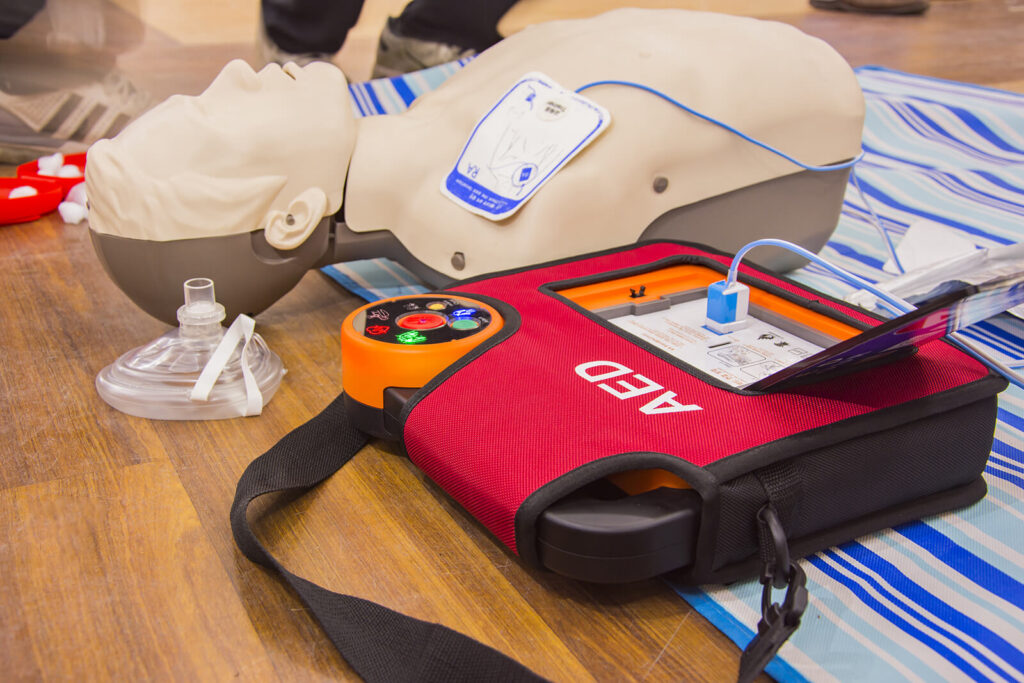
Last Updated On: octubre 7, 2024
Have you ever wondered why CPR certification expires? Here’s a surprising fact: CPR skills can decline by as much as 20% just a few months after training. That’s why most CPR certifications last only two years before needing renewal. But why is this so important? CPR guidelines are regularly updated to include the latest research on how to save lives, so keeping your certification current ensures you’re prepared with the best techniques.
In addition, renewing helps you stay confident and ready for emergencies, whether at home, work, or in public. In this guide, we’ll walk you through why CPR certification expires and what you should do when your CPR certification expires.
Reputable training agencies provide CPR certification. When you receive a CPR certificate, it signifies that you have the skills and knowledge to perform CPR correctly. This means you understand how to help someone who is experiencing cardiac arrest by performing chest compressions, rescue breathing, and, in some cases, using an Automated External Defibrillator (AED).
The duration of CPR certification validity depends on the training provider. Generally, most CPR certifications are valid for two years. After this period, your certification will expire, and you’ll need to renew it. The two-year validity is designed to ensure that people remain competent in their skills since CPR guidelines and procedures can change over time. Renewing your certification helps you stay updated on the latest protocols and techniques.
Everyone should keep their CPR certification up to date, as skills can fade over time, and the higher authorities may suggest new guidelines. Thus, knowing when it’s time to renew helps you stay prepared for emergencies. Some signs that indicate that now your certification or skills need renewal are as follows:
When your CPR certification expires, it’s important to renew it as soon as possible. Staying certified ensures you’re always ready to help in an emergency. The steps you should take during your recertification process are:
The first thing you need to do is check the expiration date of your certification. CPR certifications usually expire after two years, but the exact date will be printed on your certification card or digital certificate. If you’re close to the expiration date or already past it, it’s time to start the renewal process.
Many organizations offer CPR renewal courses specifically designed for people whose certification is expiring. These courses focus on refreshing your existing knowledge and teaching you about any updates in CPR guidelines. You can find CPR renewal courses through:
The renewal course is typically shorter than the initial certification course because it is meant to be a review rather than a full training session.
You have the option to renew your CPR certification either in person or online. Here’s a quick comparison:
These classes involve hands-on practice with a certified instructor. You’ll practice chest compressions, rescue breaths, and how to use an Automated External Defibrillator (AED). Many people prefer this method because they get immediate feedback on their technique.
Online courses allow you to learn and complete your renewal at your own pace. These courses typically include video demonstrations and quizzes, and some may even involve a live instructor online. However, make sure a reputable organization accredits the online course you choose.
Once you’ve completed the review portion of your CPR course, you will usually be required to take an exam or demonstrate your skills in a test. In-person classes often include a practical skills test, while online courses might have a written exam. Passing this test is necessary to receive your renewed certification.
After completing the renewal process, you’ll receive a new certification card or digital certificate. Be sure to download or print it and keep it in a safe place. Some employers might require a physical copy, while others will accept a digital version.
If your CPR certification has expired, don’t panic! While it’s important to renew it as soon as possible, you don’t necessarily have to start from scratch. Most organizations allow a grace period of up to 30 days after expiration, during which you can still complete a renewal course. The consequences of expired CPR certification are:
Keeping your CPR certification up-to-date is important to ensure you’re always ready to help in an emergency. It’s easy to lose track of the expiration date, but with a few simple steps, you can stay on top of it. Here are some more things to keep in mind when dealing with expired CPR certification:
When your CPR certification expires, the best course of action is to renew it as soon as possible. By following the steps outlined here—checking your expiration date, signing up for a renewal course, and taking the exam—you’ll be back to being CPR-certified in no time. Keep your certification up to date to stay ready for emergencies, comply with job requirements, and avoid extra costs.
Don’t wait until it’s too late! Sign up for a CPR certification renewal course today and stay prepared to save lives. Whether you’re looking for in-person training or the flexibility of an online course, there are plenty of options available. Renew now and keep your life-saving skills sharp!
Read More: